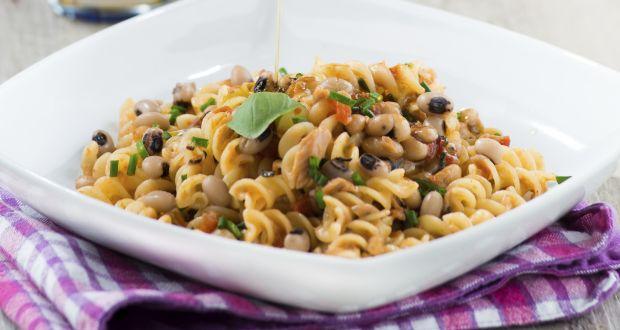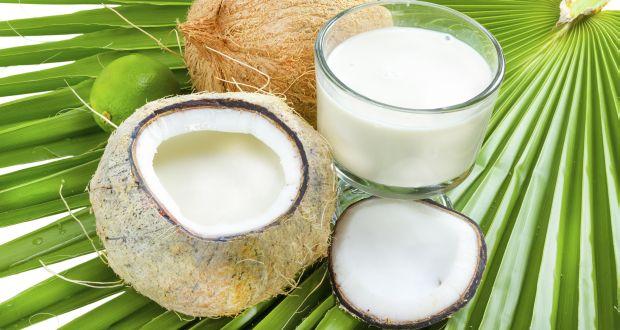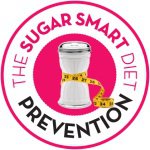Long Standing Weight Tips and Nutrition Myths Exposed
Here are ten of the most enduring and most mistaken diet and nutrition myths out there. The ones that get repeated all the time. Experts at the ADA conference busted these myths wide open giving you the scoop, once and for all, on these often repeated misconceptions.
Myth 1: Eating at night is bad for you.
According to Christine Rosenbloom, PhD, RD, CSSD of Georgia State University this is completely false. This misconception very likely came from an assumption made based on the positive effect on BMI when you eat breakfast. But that doesn't mean eating later on during the day is bad. In the end, the number of calories you take in per day, whether first thing in the morning or late at night, is all that counts.
Myth 2: You should avoid foods with a high glycemic index.
Sure being aware of the glycemic index is a good thing... knowledge always is. The trouble comes when you use this index as the measure of everything you eat. It shouldn't be your sole strategy for controlling blood sugar or trying to lose those extra pounds. At most, it will help you fine-tune your food choices. Eating a variety of healthy, natural foods is best... looking to one value alone is dangerously short sighted.
Myth 3: High fructose corn syrup causes weight gain.
This diet myth came about in 2003 when experts noticed that obesity was rising along with the increased use of high fructose corn syrup. Attempts were made to link the two together and it took a while to find the answer. The American Medical Association has just concluded that high fructose corn syrup does not contribute to obesity, beyond the calories in the food itself.
Myth 4: Caffeine is bad for you.
According to Rosenbloom, there is some evidence that caffeine, besides giving you a shot of alertness, might also have a positive effect on conditions like gout and Parkinson's disease. And contrary to popular belief, caffeine doesn't dehydrate you. What you do want to watch for is the hidden caffeine in products, and the number of high caffeine energy drinks your children may be taking in during the day... kids gulp these down without realizing what's inside.
Myth 5: The less fat you eat, the better.
Counting fat grams isn't everything and those with heart disease, diabetes and metabolic syndrome might actually benefit from adding a little healthy fat to their diet. Healthy fat is the monounsaturated kind and should be substituted, whenever possible, for saturated fats. Again casting one component of a diet as the "bad guy" is misleading, moderation in all things is your best bet.
Myth 6: To eat less sodium, avoid salty foods and use sea salt instead.
Gourmet salts like sea salt aren't any healthier than regular, unglamorous table salt. You use less sea salt only because this type of salt is coarser, so fewer grains fit into a standard teaspoon. If you really want to impact your sodium intake, check the labels of processed foods you choose as these tend to have high sodium contents that are a good idea to avoid.
Myth 7: Drinking more water each day will help you lose weight.
There is no evidence that water helps you shed pounds, though foods with lots of water, like soup, do fill you up. Carrying around a huge water bottle and sipping regularly may quench your thirst, but it won't affect your appetite or have you burning any more calories. According to Rosenbloom, "Our thirst mechanism and our hunger mechanism are two different things."
Myth 8: Whole grains are always better than refined grains.
While whole grains are a great tasting, healthy option, you don't have to ditch refined grains altogether. In fact, the U.S. Department of Agriculture's "My Pyramid" guidelines suggest getting just half your grains from whole grain sources. Rather than putting a ban on breads, look for enriched grains - refined grains with some nutrients (like folic acid and others) can have health benefits too. A well balanced diet includes both sources of grains.
Myth 9: Sugar causes behavior problems in kids.
This is one myth where you need to look hard at your own expectations. What do you expect your child (or any child for that matter) to do after eating candy and then there's the "sugar high" everyone talks about. Surprisingly, studies show that when parents think kids have been given sugar, they rate the child's behavior as more hyper, though in fact no sugar had been eaten. Rather than blaming sugar, think about expectation and the excitement of the event at hand as a source for your child's excitable behavior.
Myth 10: Protein is the key nutrient for athletes.
Of course athletes do need more protein than the rest of us, but they don't need nearly as much as they've been led to believe. Supplements probably aren't necessary as athletes, body and health conscious, as they tend to be, are usually getting plenty of protein from their food. If you're weight training, eating protein after a workout, about 8 grams (what you'll find in a small carton of low fat chocolate milk), will help your muscle tissue rebuild. Multiple scoops of whey powder as part of a special drink is probably going overboard.
These weight tips and myths are not the only ones that have little grounding in reasonable research but this article should outline some of the major myths circulating.
Related Articles
-
The Very Best Diet Program Is Likely To Make Weight Loss A Cinch
There are so many conflicting views about dieting, by many people, h
-
Weight Loss Tip #111 – Fidgeting can help you lose weight!
-
The Paleo Revolution
-
Lose Weight Quickly - Stupendous Tricks To Lose Weight Fast
If you are also one of those people who have always desired to achiev
-
6 Simple Ways To Have A Healthier BBQ
Whether its Memorial Day weekend or a cookout with friends, BBQs, and
-
HCG Diet Info
Have you heard about the HCG diet? This is a diet that Kevin Tru
- DON'T MISS
- Lighten Up With These Easy Tips To Lose Weight
- 8 Things That Happen When You Finally Stop Drinking Diet Soda
- I cheated - I watched Biggest Loser last night
- Make Over My Diet
- Losing Weight Tips That Really Work
- 10 Tricks To Beat A Fat Day
- Things A Woman Needs to Burn Fat Fast.
- This App Pays You to Work Out (Yes, This Is Real Life)
- Untold Weight Loss Truths You May Not Know About
- 3 Quick Weight Loss Tips




